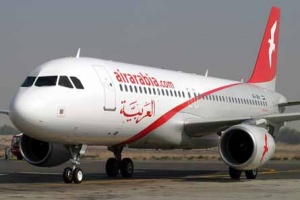Breaking Travel News interview: Adel Ali, group chief executive, Air Arabia

Breaking Travel News sits down with Air Arabia group chief executive Adel Ali as the low cost Middle Eastern carrier, which has reported a huge surge in passengers in recent months, looks to expand its fleet and global reach.
Breaking Travel News: Air Arabia welcomed 461,106 passengers in August 2012, up 22 per cent compared to the previous year. How are September figures looking? To what do you attribute your on-going growth?
Adel Ali: We have enjoyed a very high average seat factor since the beginning of the year, which means that all the routes we fly are very popular.
The airline’s ambitious network expansion strategy was central to the significant growth in passenger numbers witnessed over the past year.
As we further expand our fleet and increase our global reach, we foresee a significant growth in passenger traffic for the rest of the year.
BTN: Which key markets will you be looking to tap into in coming months?
AA: At Air Arabia, we constantly evaluate opportunities to strengthen our existing services and introduce more destinations.
Our markets target strategy will remain in line with what the airline has achieved to date: focusing on serving the markets that are most appealing to our customers, ensuring that we are where they need us to be.
BTN: Can you comment on any key developments you have recently announced or that are in the pipeline?
AA: We know that our customers value the efficiency of Air Arabia’s operations which enables them to travel more for less.
Air Arabia recently launched it pre-booked baggage policy that enables passengers to pay for only the baggage weight they need.
Also, the airline has recently launched a City Check-in facility in Dubai which is a great value addition for our passengers; helping to reduce the amount of time they need to spend at the airport and making the process of flying just a little more hassle free.
BTN: What are your key challenges at present? How have rising fuel costs impacted on business?
AA: The decelerating economic growth in developed economies, coupled with spiking oil prices present significant challenges for the global aviation sector.
However, we remain upbeat about the significant growth prospects of the LCC market in the region, which plays an important role in the aviation sector in the wider Arab world.
This is evident from the growing number of destinations that Air Arabia serves.
BTN: Do you expect to see competition rising in the low cost sector?
AA: We believe that competition is a vital element for the health of the aviation sector and leads to much better value for passengers.
The LCC model pioneered by Air Arabia has grown in popularity, and more and more participants have entered the market.
Yet, Air Arabia still sets the benchmark, we work hard to maintain that status.
BTN: Can you provide a future outlook for Middle East aviation?
AA: Given the Middle East demographic, where air travel is mostly the only means of transport between Arab states, there is still plenty of room for growth in these markets.
In the past ten years, we have seen many positive developments regarding the Middle East aviation sector, but the region is yet to benefit from full open-skies policy.
Furthermore, privatisation would help improve profits for airlines and bring the Middle East aviation sector a step closer to the maturity of the European and US markets.
Additionally, there must be a greater emphasis on providing people with the necessary skills and training in order to maintain the continued growth of the Middle East aviation industry.

